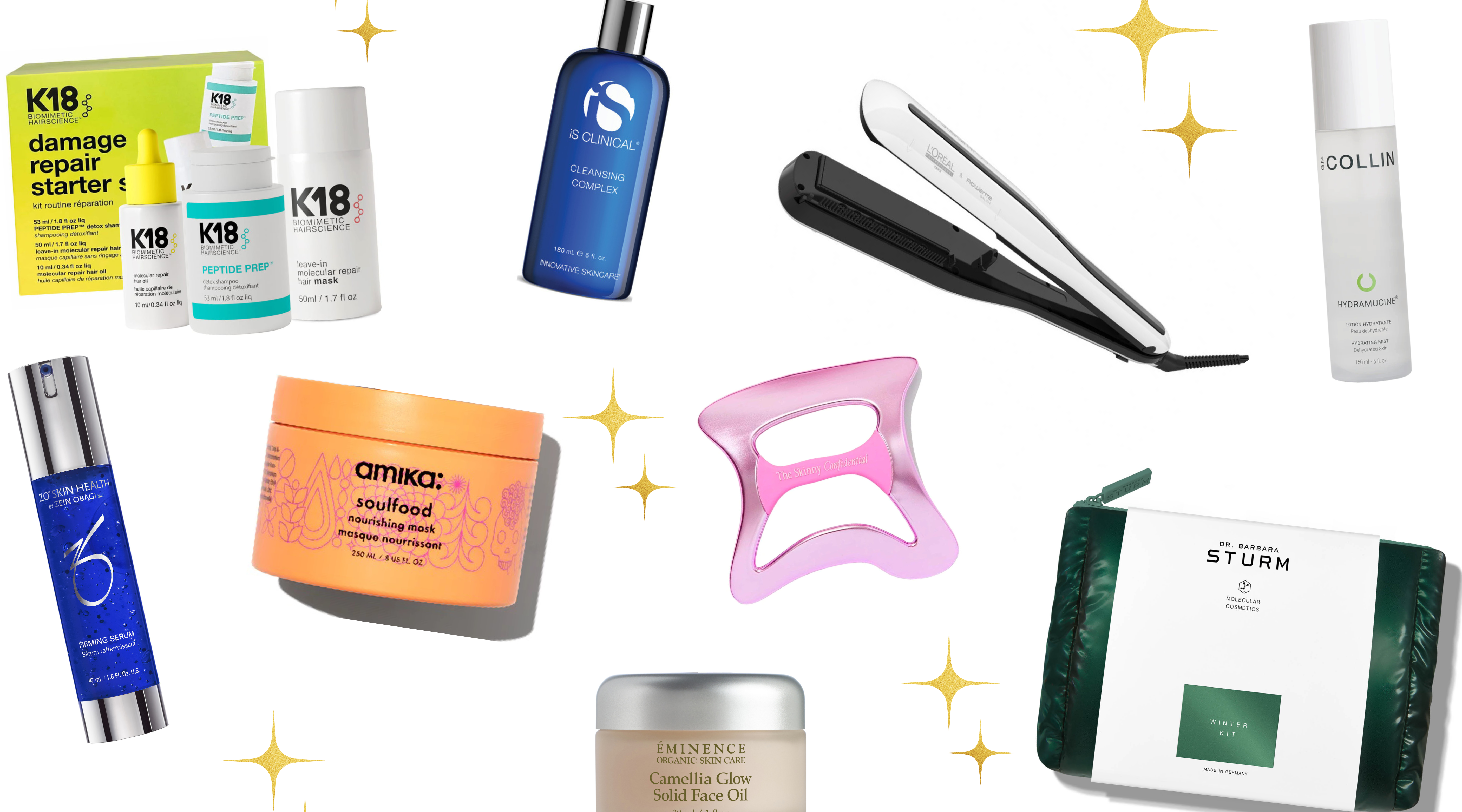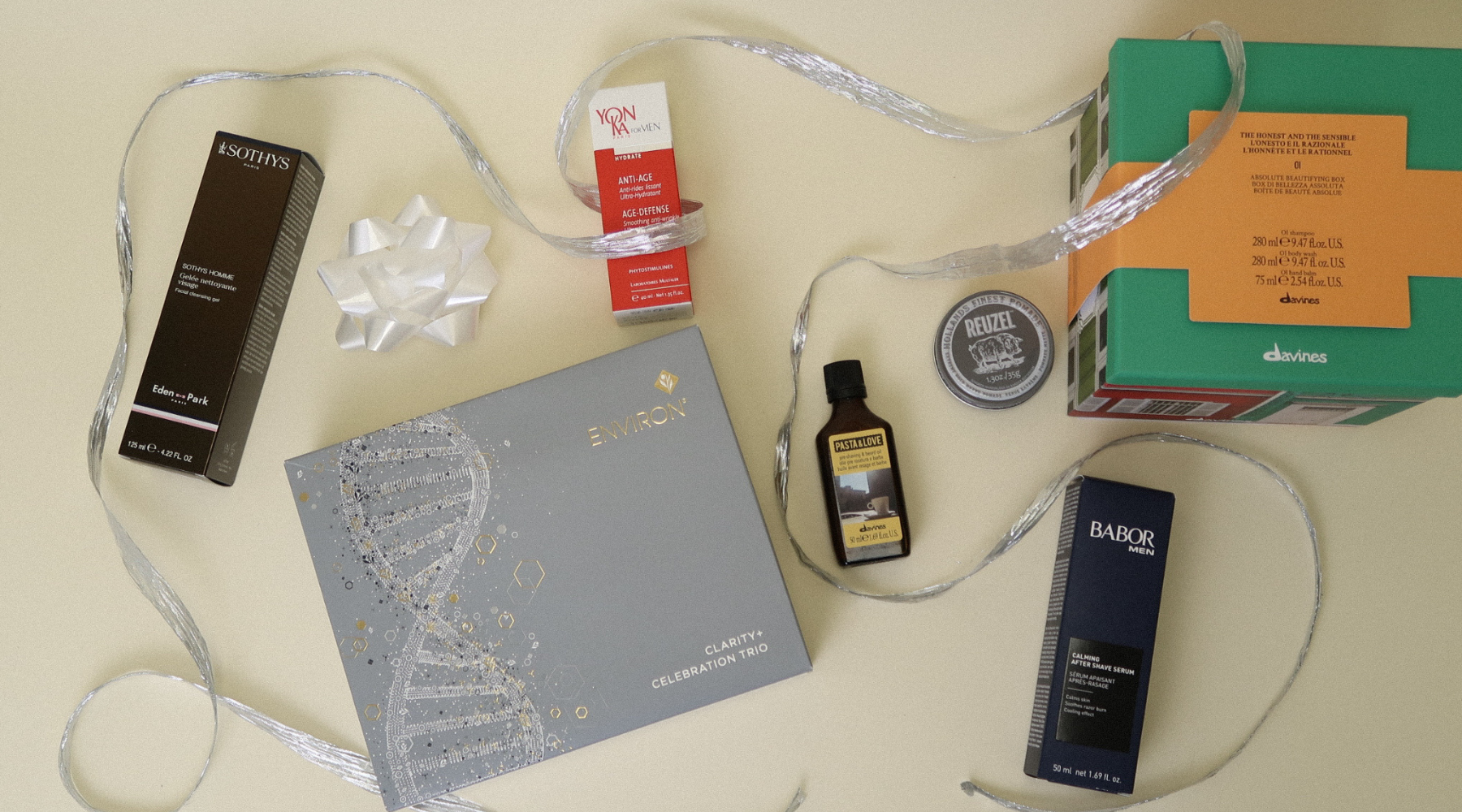
Peptides Pep Talk with Joanne Hendry
As a renowned skincare specialist, Joanne Hendry (creator and founder of SkinVacious) sat down with us to share her knowledge on the SKNKRE podcast; where we covered the 12 top ingredients in skincare and why they each benefit our skin. And if you’re wondering what the common denominator amongst many of these ingredients is, you guessed it: it’s the way the work in correlation to peptides.
From their role in skincare routines to their collaboration with other ingredients, if you’ve ever wondered what peptides can do––make sure to read on below!
WHAT ARE THE BENEFITS OF PEPTIDE-RICH SKINCARE
Peptides are strings of amino acids which act as the "building blocks" of proteins like collagen, elastin, and keratin. These proteins are the foundation of our skin and are responsible for its texture, strength, and resilience.
Certain peptides are formulated to address specific skin concerns. Some target fine lines and wrinkles, while others focus on the skin's firmness or hydration. Peptides can be a great complement to other skincare ingredients, but they are not necessarily a direct replacement for ingredients like retinol or hyaluronic acid.
Peptides are beneficial in a skincare routine as they can be absorbed directly into the skin. They support cellular repair and renewal and can enhance the penetration of other active ingredients.
HOW CAN YOU IDENTIFY A PEPTIDE?
Given the abundance of peptides and their lengthy names, identifying them on an ingredient list is a challenge. A helpful indicator that a peptide is present is looking for an ingredient name that ends with 'peptide' or begins with 'palmitoyl.'
Some ingredients don’t “read” as peptides on a product ingredient list, but chemically speaking, they’re peptides; this includes glutathione, carnosine, and silk protein.
WHAT ARE SOME PEPTIDE BEST PRACTICES?
- Use them as leave-ons: The best way for peptides to deliver their unique range of benefits is when they are used through leave-on products, such as moisturizers, serums, boosters, eye creams, masks, and sunscreens. A cleanser, for example, won’t be as effective because it’s rinsed off.
- Choose other ingredients wisely: “Peptides work best when formulated with supporting ingredients, such as ceramides, vitamin C, niacinamide, antioxidants, and hyaluronic acids”, Joanne explains.
- Always test lightly: Peptides are generally considered safe for use in skincare, and side effects are rare. That being said, some people may be sensitive to specific peptides, so it's always recommended to start with a thin layer of new product. Using a peptide with an alpha hydroxy acid (AHA), for example, will actually make the peptides “work less efficiently”, she adds.
WHAT ABOUT COLLAGEN PEPTIDES?
Collagen peptides––otherwise known as hydrolyzed collage––have gotten a lot of word of mouth lately, both in supplements and in topical skin care products.
This specific form of peptide is just too large to penetrate the skin, so it cannot actually help prompt collagen regeneration or repair the skin. However, this doesn’t mean that it’s not beneficial––this ingredient acts as a humectant, attracting and binding water to the skin. In turn, this promotes a dewy, smooth, and hydrated appearance.
Research shows these peptides (which can be extracted from both plant or animal collagen) have benefits when used in both topical and supplement applications. Taking collagen peptides orally can also result in smoother, more hydrated skin.
VITAL PROTEINS COLLAGEN PEPTIDES
NELLY DE VUYST LIFTING PEPTIDES SERUM
GM COLLIN PARIS BOTA-PEPTIDES SERUM
BABOR POWER SERUM AMPOULE: PEPTIDES
Curious to learn more about peptides and, more specifically, the benefits of the ingredients they work in tandem with? You can check out our most recent podcast with Joanne right here.
Until next time,
The BSE Team















Leave a comment
This site is protected by hCaptcha and the hCaptcha Privacy Policy and Terms of Service apply.